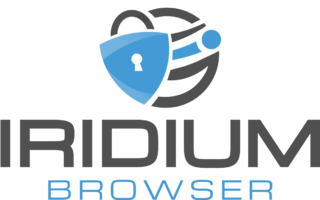Difference between revisions of "Browser"
(initial draft) |
(adds more links) |
||
| (2 intermediate revisions by the same user not shown) | |||
| Line 1: | Line 1: | ||
| + | __NOTOC__ | ||
[[File:Browser.svg|thumb|100px]] What web browser do you use? | [[File:Browser.svg|thumb|100px]] What web browser do you use? | ||
| − | If you're like most people <ref>[[wp:Usage share of web browsers]]</ref>, you're using Google's '''Chrome''' browser. Not the worst choice. But Chrome is a Google proprietary product with no price attached. What that means, is that YOU are the product. By using no-price products/services, there is an inherent business model built-in whereby you are funding some revenue somewhere. Usually that means that your private data is the product which the vendor is monetizing. If you're using Chrome to Facebook, then you really don't care about privacy at all. | + | If you're like most people <ref>[[wp:Usage share of web browsers]]</ref>, you're using Google's '''Chrome''' browser. Not the worst choice. But Chrome is a Google proprietary product with no price attached. What that means, is that YOU are the product. By using no-price products/services, there is an inherent business model built-in whereby you are funding some revenue somewhere. Usually that means that your private data is the product which the vendor is monetizing. If you're using Chrome to Facebook, then you really don't care about privacy at all, since Facebook is the world's biggest profiling engine. |
If you're using Microsoft's Internet Explorer, or Apple's Safari browser, you should definitely try an open source alternative. | If you're using Microsoft's Internet Explorer, or Apple's Safari browser, you should definitely try an open source alternative. | ||
== Open Source Browsers == | == Open Source Browsers == | ||
| − | Browsers such as Google's '''Chromium''' (the upstream for Chrome) or Mozilla Foundation's '''FireFox''' are open source. They offer much better features, privacy and control compared with the proprietary browsers. Still, there are plenty of reasons why these browsers don't go far enough to protect your privacy ''by default''. One open source option which does offer a good degree of privacy out of the box is also the ''oldest'' browser still in use today: the '''[http://lynx.invisible-island.net/ lynx]''' browser is a text-based browser. But, because it's text-based, you probably won't use it unless you're normally in front of a console. | + | Browsers such as Google's '''Chromium''' (the upstream for Chrome) or Mozilla Foundation's '''[https://www.mozilla.org/en-US/firefox/products/ FireFox]''' are open source. They offer much better features, privacy and control compared with the proprietary browsers. Since the Mozilla Foundation is a non-profit corporation for the public benefit, FireFox is arguably the best choice for consumers. FireFox offers an extension called '[https://addons.mozilla.org/en-US/firefox/addon/lightbeam/ Lightbeam]' which will show you how web beacons, cookies and 3rd-party content or sites create the web that you don't see. See the Ted Talk https://www.ted.com/talks/gary_kovacs_tracking_the_trackers and this demo: {{#ev:youtube|https://www.youtube.com/watch?v=PvqGy9wz_wA|right}} |
| + | |||
| + | |||
| + | Still, there are plenty of reasons why these browsers don't go far enough to protect your privacy ''by default''. One open source option which does offer a good degree of privacy out of the box is also the ''oldest'' browser still in use today: the '''[http://lynx.invisible-island.net/ lynx]''' browser is a text-based browser. But, because it's text-based, you probably won't use it unless you're normally in front of a console. | ||
== Privacy Enhanced == | == Privacy Enhanced == | ||
| − | [[File:iridium-logo.png|320px|link=https://iridiumbrowser.de/]] | + | |
| + | === Iridium === | ||
| + | [[File:iridium-logo.png|320px|link=https://iridiumbrowser.de/|right]] | ||
The Iridium browser is a fork of the Chromium project with many key differences that provide privacy ''by default'', and actually disables privacy-leaching aspects which are not exposed to the user in "settings". https://iridiumbrowser.de/ | The Iridium browser is a fork of the Chromium project with many key differences that provide privacy ''by default'', and actually disables privacy-leaching aspects which are not exposed to the user in "settings". https://iridiumbrowser.de/ | ||
| + | |||
| + | === Tor Browser === | ||
| + | Tor Browser is based on FireFox https://www.torproject.org/projects/torbrowser.html | ||
| + | |||
| + | === IceCat === | ||
| + | [https://www.gnu.org/software/gnuzilla/ IceCat] is the GNU Project's distribution of a FireFox based browser | ||
| + | |||
{{References}} | {{References}} | ||
Latest revision as of 17:47, 3 January 2017
What web browser do you use?
If you're like most people [1], you're using Google's Chrome browser. Not the worst choice. But Chrome is a Google proprietary product with no price attached. What that means, is that YOU are the product. By using no-price products/services, there is an inherent business model built-in whereby you are funding some revenue somewhere. Usually that means that your private data is the product which the vendor is monetizing. If you're using Chrome to Facebook, then you really don't care about privacy at all, since Facebook is the world's biggest profiling engine.
If you're using Microsoft's Internet Explorer, or Apple's Safari browser, you should definitely try an open source alternative.
Open Source Browsers[edit | edit source]
Browsers such as Google's Chromium (the upstream for Chrome) or Mozilla Foundation's FireFox are open source. They offer much better features, privacy and control compared with the proprietary browsers. Since the Mozilla Foundation is a non-profit corporation for the public benefit, FireFox is arguably the best choice for consumers. FireFox offers an extension called 'Lightbeam' which will show you how web beacons, cookies and 3rd-party content or sites create the web that you don't see. See the Ted Talk https://www.ted.com/talks/gary_kovacs_tracking_the_trackers and this demo:
Still, there are plenty of reasons why these browsers don't go far enough to protect your privacy by default. One open source option which does offer a good degree of privacy out of the box is also the oldest browser still in use today: the lynx browser is a text-based browser. But, because it's text-based, you probably won't use it unless you're normally in front of a console.
Privacy Enhanced[edit | edit source]
Iridium[edit | edit source]
The Iridium browser is a fork of the Chromium project with many key differences that provide privacy by default, and actually disables privacy-leaching aspects which are not exposed to the user in "settings". https://iridiumbrowser.de/
Tor Browser[edit | edit source]
Tor Browser is based on FireFox https://www.torproject.org/projects/torbrowser.html
IceCat[edit | edit source]
IceCat is the GNU Project's distribution of a FireFox based browser
References[edit source]
Timeline of Web Browsers[edit | edit source]
Here is a wp:List of web browsers and a corresponding timeline


